Abstract
The user interface of an electronic patient record system can significantly improve user acceptance and ease its adoption process. The design of a user interface should take into consideration the characteristics and the needs of the user incorporating usability engineering principles in the lifecycle of its development. In this paper we describe a study of physician interaction with a paper-based patient record system and a graphical-based electronic patient record system. The usability attributes of learnability, efficiency and satisfaction are evaluated on the whole spectrum of physicians' activities with patient record systems. The results of the study did not reveal a significant difference in the overall time to complete typical physician tasks. However, on average physicians can perform viewing tasks faster, documenting tasks slower and ordering tasks at about the same speed on the graphical-based system than on the paper based system. Physicians were found to be significantly more satisfied with the graphical-based system than with the paper-based system. The results also revealed that physicians with higher levels of computer literacy and typing skills can complete typical tasks in significantly less time on a graphical-based system than physicians with lower levels of computer literacy and typing skills.
Full text
PDF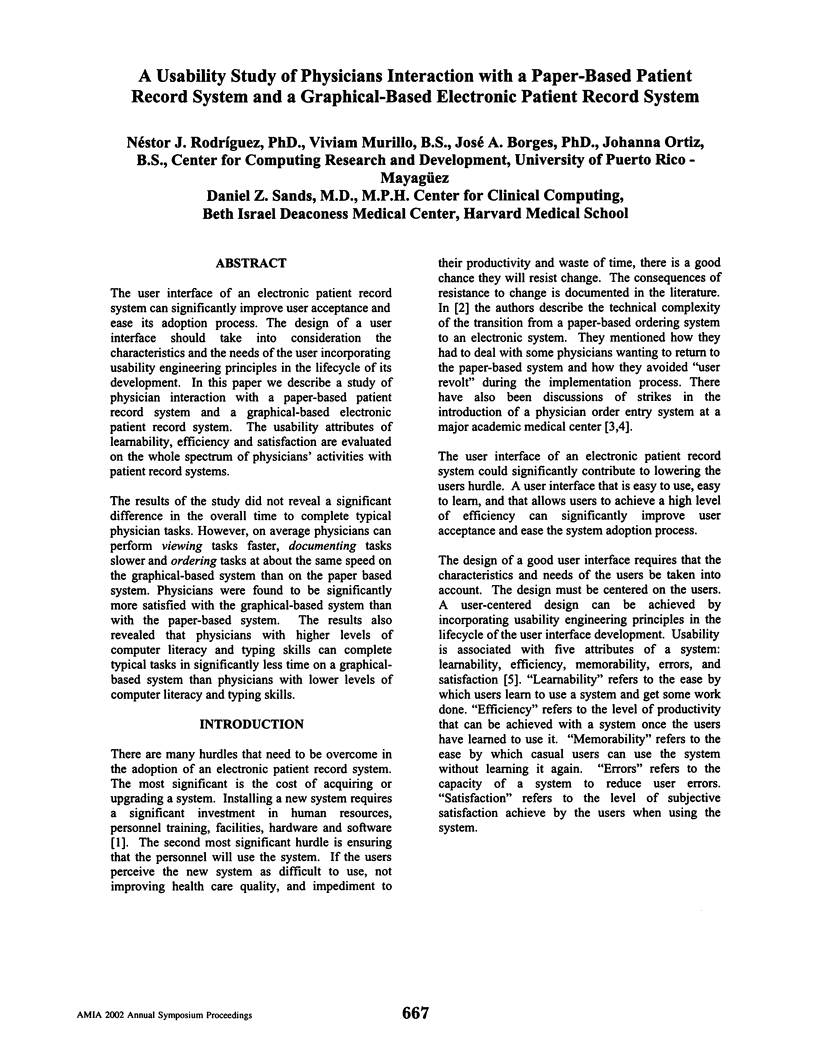
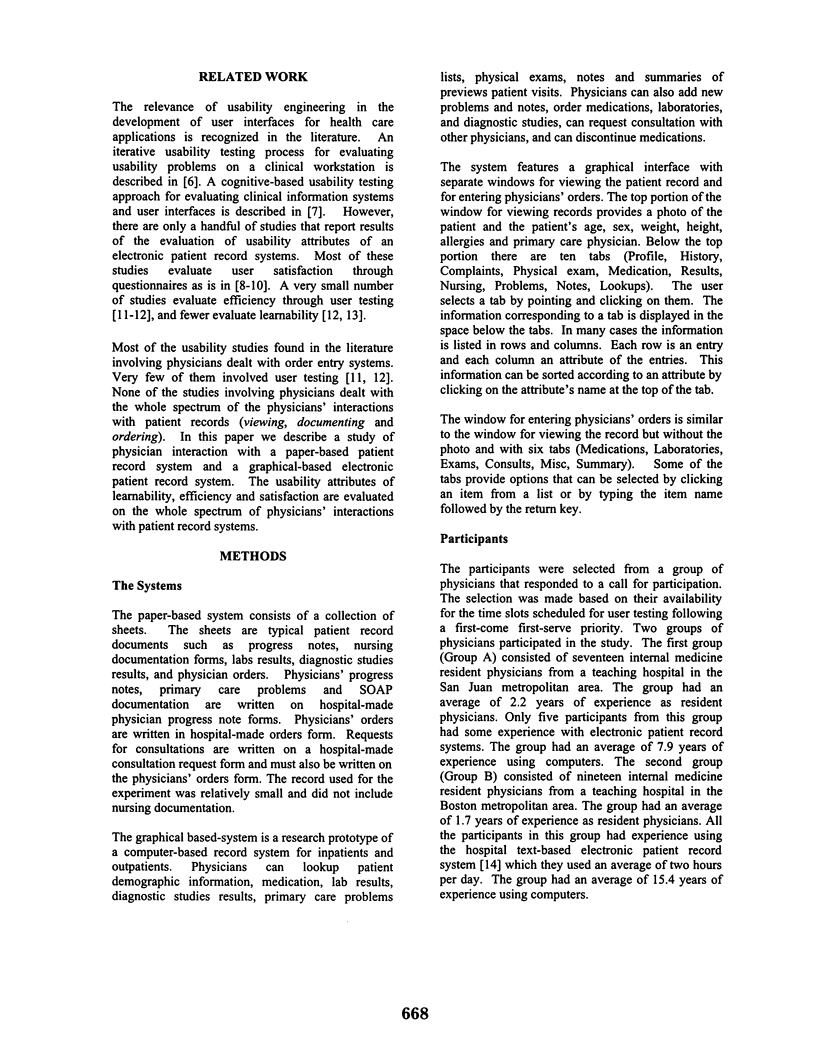
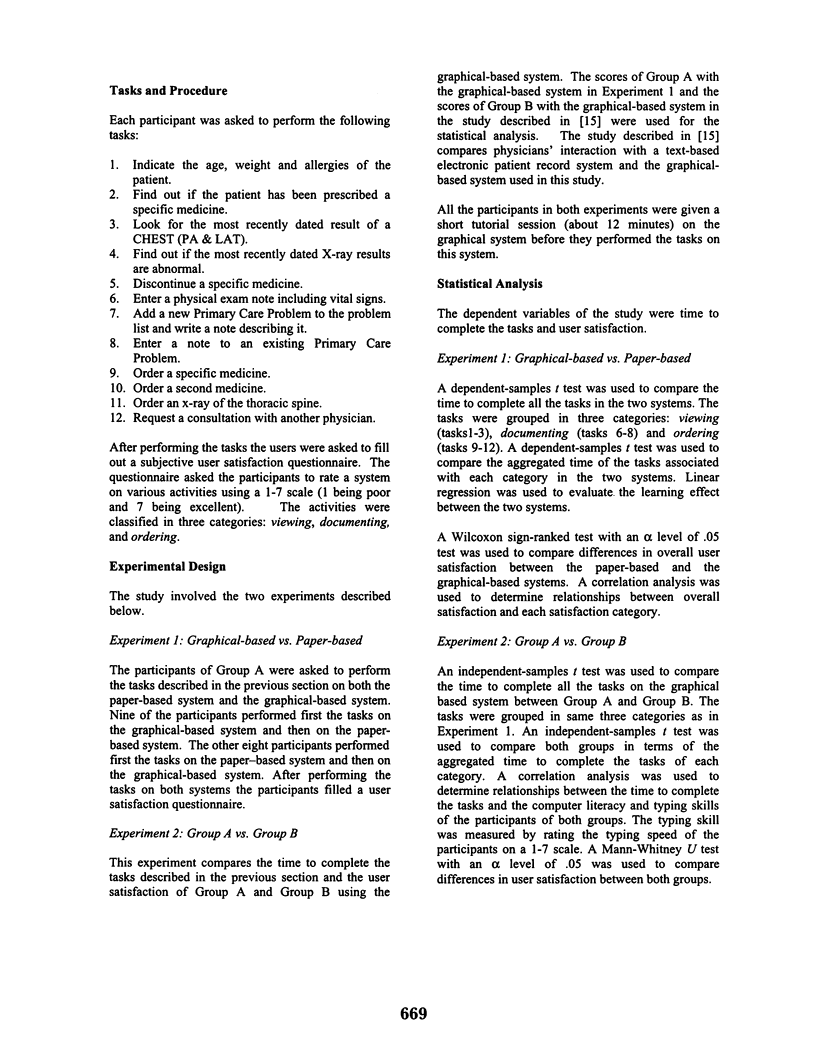
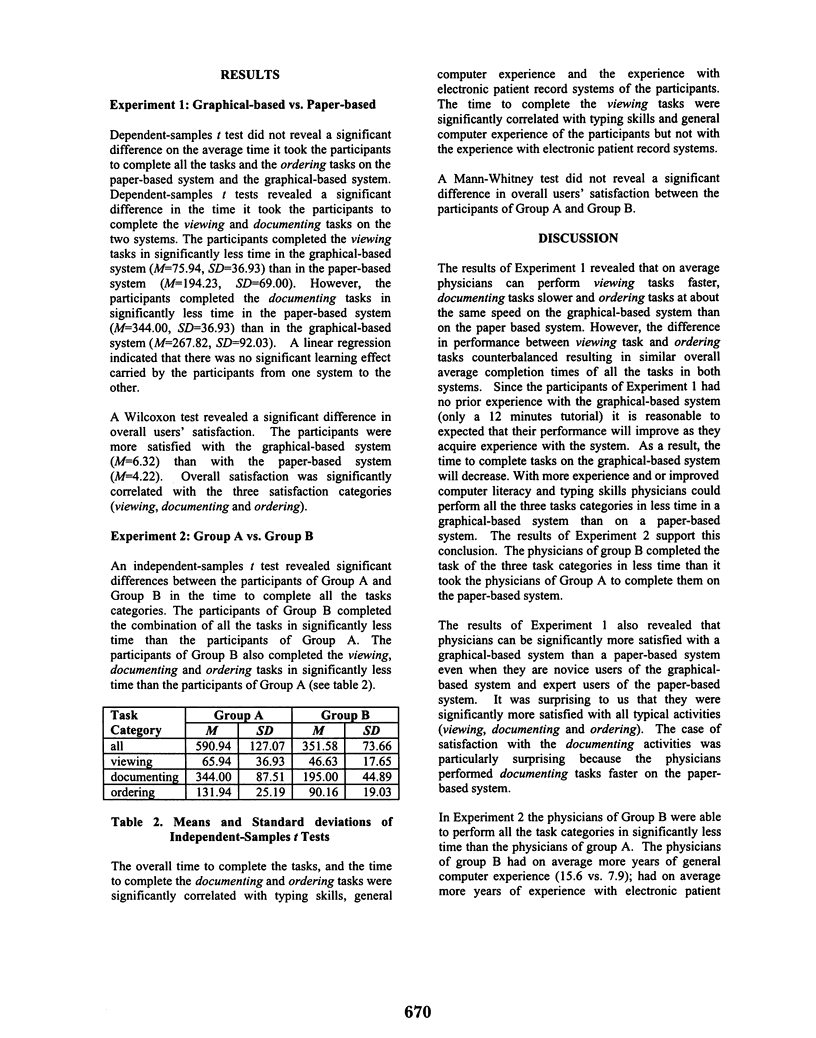
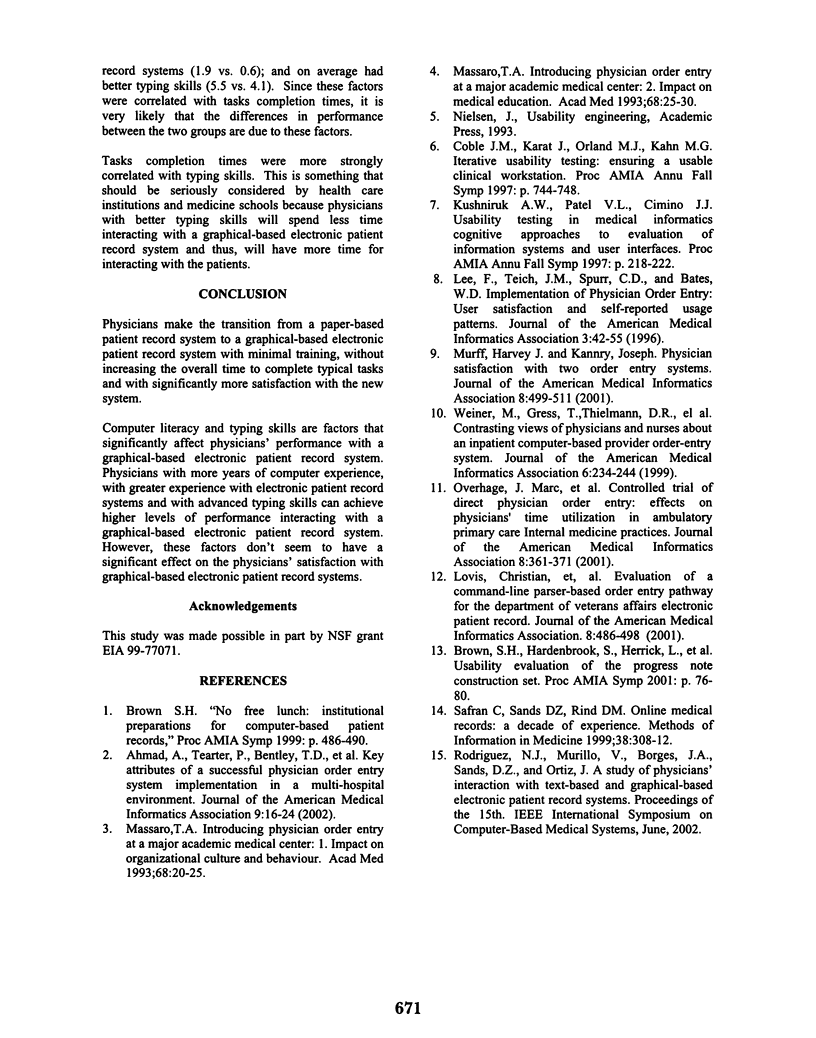
Selected References
These references are in PubMed. This may not be the complete list of references from this article.
- Ahmad Asif, Teater Phyllis, Bentley Thomas D., Kuehn Lynn, Kumar Rajee R., Thomas Andrew, Mekhjian Hagop S. Key attributes of a successful physician order entry system implementation in a multi-hospital environment. J Am Med Inform Assoc. 2002 Jan-Feb;9(1):16–24. doi: 10.1136/jamia.2002.0090016. [DOI] [PMC free article] [PubMed] [Google Scholar]
- Brown S. H., Hardenbrook S., Herrick L., St Onge J., Bailey K., Elkin P. L. Usability evaluation of the progress note construction set. Proc AMIA Symp. 2001:76–80. [PMC free article] [PubMed] [Google Scholar]
- Brown S. H. No free lunch: institutional preparations for computer-based patient records. Proc AMIA Symp. 1999:486–490. [PMC free article] [PubMed] [Google Scholar]
- Coble J. M., Karat J., Orland M. J., Kahn M. G. Iterative usability testing: ensuring a usable clinical workstation. Proc AMIA Annu Fall Symp. 1997:744–748. [PMC free article] [PubMed] [Google Scholar]
- Kushniruk A. W., Patel V. L., Cimino J. J. Usability testing in medical informatics: cognitive approaches to evaluation of information systems and user interfaces. Proc AMIA Annu Fall Symp. 1997:218–222. [PMC free article] [PubMed] [Google Scholar]
- Lee F., Teich J. M., Spurr C. D., Bates D. W. Implementation of physician order entry: user satisfaction and self-reported usage patterns. J Am Med Inform Assoc. 1996 Jan-Feb;3(1):42–55. doi: 10.1136/jamia.1996.96342648. [DOI] [PMC free article] [PubMed] [Google Scholar]
- Massaro T. A. Introducing physician order entry at a major academic medical center: I. Impact on organizational culture and behavior. Acad Med. 1993 Jan;68(1):20–25. doi: 10.1097/00001888-199301000-00003. [DOI] [PubMed] [Google Scholar]
- Massaro T. A. Introducing physician order entry at a major academic medical center: II. Impact on medical education. Acad Med. 1993 Jan;68(1):25–30. doi: 10.1097/00001888-199301000-00004. [DOI] [PubMed] [Google Scholar]
- Murff H. J., Kannry J. Physician satisfaction with two order entry systems. J Am Med Inform Assoc. 2001 Sep-Oct;8(5):499–509. doi: 10.1136/jamia.2001.0080499. [DOI] [PMC free article] [PubMed] [Google Scholar]
- Overhage J. M., Perkins S., Tierney W. M., McDonald C. J. Controlled trial of direct physician order entry: effects on physicians' time utilization in ambulatory primary care internal medicine practices. J Am Med Inform Assoc. 2001 Jul-Aug;8(4):361–371. doi: 10.1136/jamia.2001.0080361. [DOI] [PMC free article] [PubMed] [Google Scholar]
- Safran C., Sands D. Z., Rind D. M. Online medical records: a decade of experience. Methods Inf Med. 1999 Dec;38(4-5):308–312. [PubMed] [Google Scholar]
- Weiner M., Gress T., Thiemann D. R., Jenckes M., Reel S. L., Mandell S. F., Bass E. B. Contrasting views of physicians and nurses about an inpatient computer-based provider order-entry system. J Am Med Inform Assoc. 1999 May-Jun;6(3):234–244. doi: 10.1136/jamia.1999.0060234. [DOI] [PMC free article] [PubMed] [Google Scholar]


